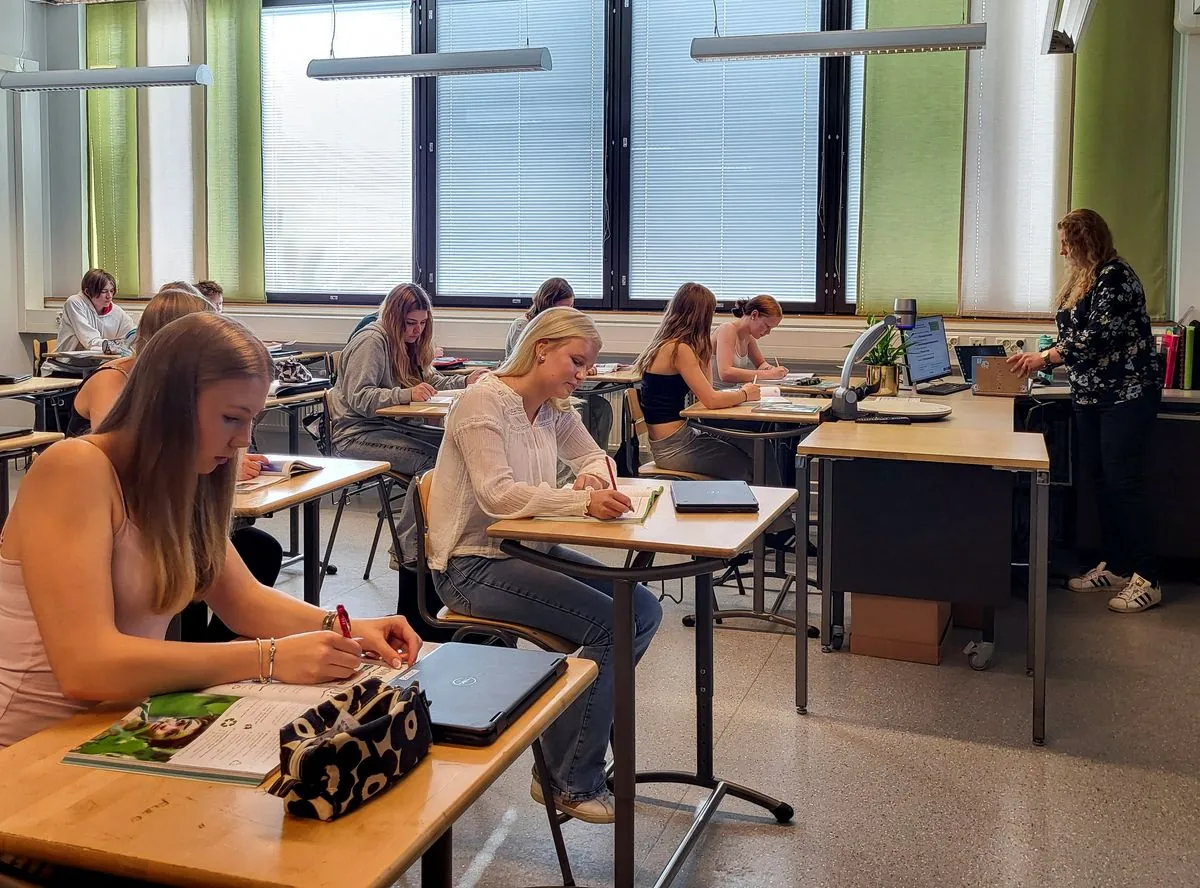In a surprising turn of events, Finland, renowned for its progressive education system, is reevaluating its approach to digital learning. The town of Riihimaki, located 70 km north of Helsinki, has become a pioneer in this shift, reintroducing books and traditional learning methods after a decade of promoting digital devices in classrooms.
This autumn, students in Riihimaki returned to school with backpacks filled with books, marking a significant departure from the previous digital-first approach. The decision reflects growing concerns among parents and educators about the impact of excessive screen time on children's learning and concentration.
Maija Kaunonen, an English teacher at Pohjolanrinne middle school, explained the rationale behind the change:
"Young people are using phones and digital devices so much these days that we didn't want school to be one of the places where children are only staring at screens."
The shift back to traditional learning methods comes as Finland grapples with a gradual decline in student performance in recent years. In response, the government is planning legislation to ban the use of personal devices during school hours, aiming to reduce screen time and improve focus.
Students have reported positive outcomes from the change. Elle Sokka, a 14-year-old pupil, admitted to previously drifting off to different websites during digital learning. Her classmates, Miko Mantila and Inka Warro, both 14, noted improvements in concentration and reading speed since the reintroduction of books.
Minna Peltopuro, a clinical neuropsychologist working with Riihimaki on this transition, emphasized the importance of minimizing screen time. She highlighted the physical and mental risks associated with excessive digital use, including eye problems and increased anxiety. Peltopuro also pointed out the vulnerability of young brains to multitasking, a common issue with digital learning.
This shift in Finland's approach to education is particularly noteworthy given the country's reputation for educational innovation. Finland consistently ranks among the top countries in global education assessments and is known for its focus on equity and lack of standardized testing. The country introduced a new national curriculum in 2016 emphasizing digital skills, making this recent pivot all the more significant.
As Finland navigates this balance between traditional and digital learning methods, it continues to uphold other unique aspects of its education system. These include later school starting ages, highly selective teacher education programs, and a strong emphasis on play-based learning in early childhood education. The country also provides free meals to all students and maintains a decentralized education system with high teacher autonomy.
This recalibration of Finland's approach to technology in education serves as a reminder of the ongoing global debate about the role of digital tools in learning. As countries worldwide grapple with similar issues, Finland's experience may offer valuable insights into striking the right balance between innovation and traditional pedagogical methods.
